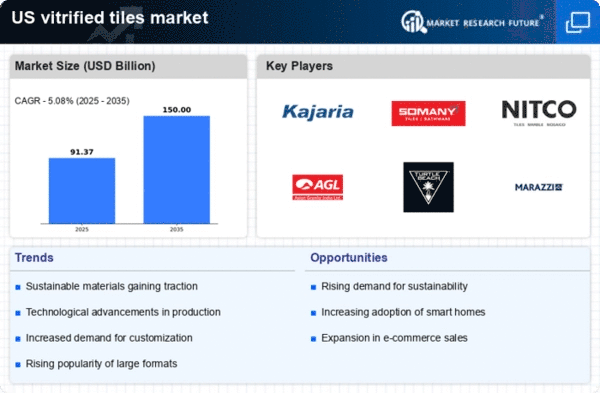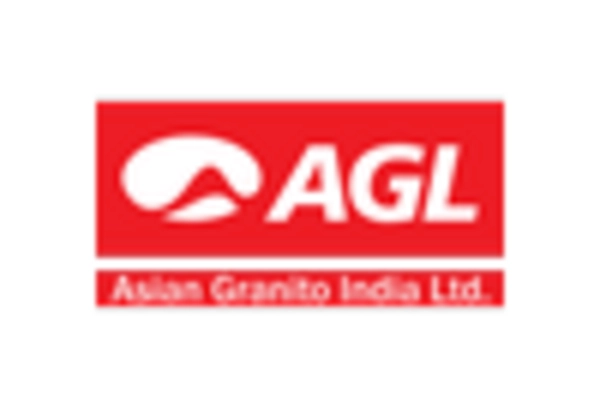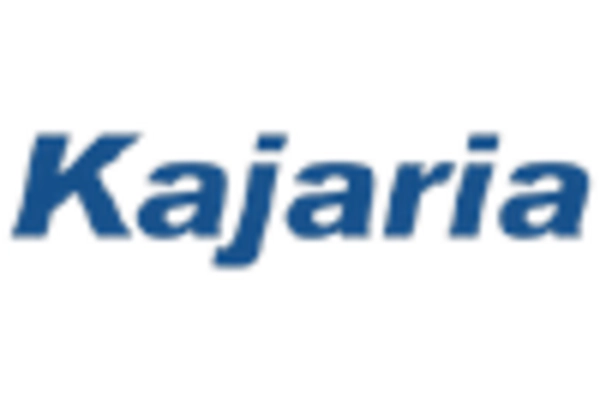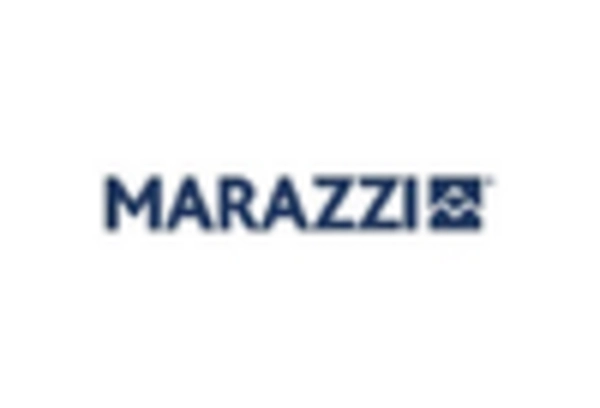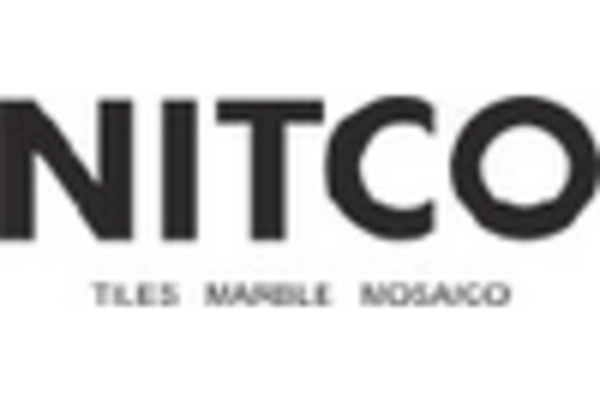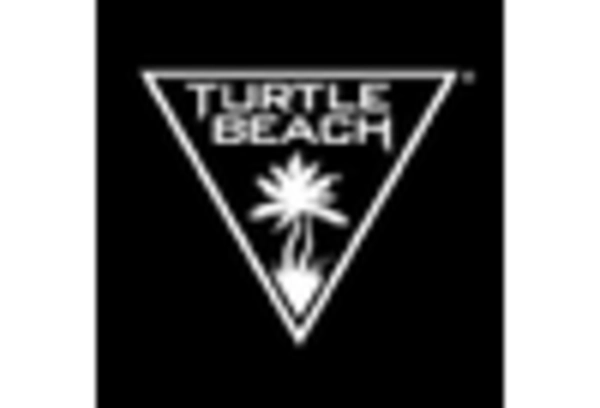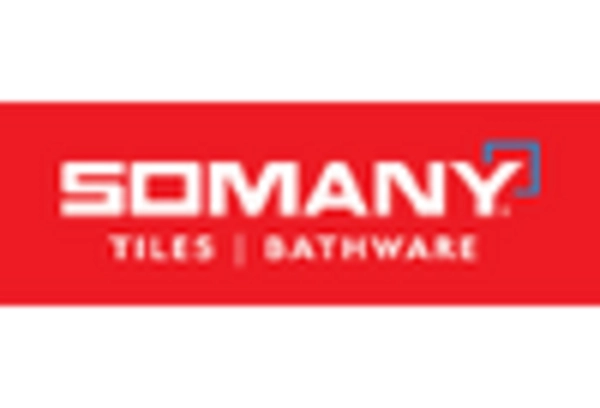Rising Construction Activities
The ongoing expansion in the construction sector appears to be a primary driver for the vitrified tiles market. With a projected growth rate of approximately 4.5% annually, the demand for high-quality flooring solutions is increasing. Residential and commercial projects are increasingly incorporating vitrified tiles due to their durability and aesthetic appeal. The construction of new homes, commercial spaces, and infrastructure projects is likely to bolster the market. Furthermore, the trend towards modern architecture, which often emphasizes sleek and stylish finishes, aligns well with the characteristics of vitrified tiles. As a result, the vitrified tiles market is expected to benefit significantly from these construction activities, potentially leading to increased sales and market penetration.
Growth in Real Estate Investments
The increasing investments in the real estate sector are significantly impacting the vitrified tiles market. With a surge in both residential and commercial real estate developments, the demand for high-quality flooring solutions is on the rise. Reports indicate that real estate investments in the US are expected to reach $500 billion by 2026, creating a favorable environment for the vitrified tiles market. Developers are increasingly opting for vitrified tiles due to their durability and aesthetic versatility, which can enhance property value. This trend suggests that as real estate projects proliferate, the vitrified tiles market is likely to experience substantial growth, driven by the need for premium flooring options.
Consumer Preference for Low Maintenance
A notable shift in consumer preferences towards low-maintenance flooring solutions is influencing the vitrified tiles market. Homeowners and businesses are increasingly seeking materials that require minimal upkeep while providing durability and aesthetic value. Vitrified tiles, known for their resistance to stains and scratches, align well with these preferences. According to recent surveys, approximately 70% of consumers prioritize low-maintenance options when selecting flooring materials. This trend is particularly pronounced in urban areas where busy lifestyles demand practical solutions. Consequently, the vitrified tiles market is likely to see a surge in demand as consumers opt for products that offer both functionality and style, thereby enhancing their living and working environments.
Increasing Awareness of Aesthetic Appeal
The growing awareness among consumers regarding the aesthetic appeal of flooring options is influencing the vitrified tiles market. As interior design trends evolve, homeowners and businesses are increasingly prioritizing stylish and visually appealing materials. Vitrified tiles, available in a wide range of colors, patterns, and finishes, cater to this demand effectively. Market Research Future indicates that approximately 60% of consumers consider design as a critical factor when selecting flooring materials. This trend is particularly evident in urban areas where modern design aesthetics are highly valued. Consequently, the vitrified tiles market is likely to benefit from this heightened focus on aesthetics, as consumers seek to create visually stunning spaces.
Technological Innovations in Manufacturing
Technological advancements in the manufacturing processes of vitrified tiles are playing a crucial role in shaping the market. Innovations such as digital printing and improved glazing techniques are enhancing the aesthetic appeal and performance of these tiles. The introduction of eco-friendly manufacturing practices is also gaining traction, appealing to environmentally conscious consumers. As a result, the vitrified tiles market is witnessing an influx of new designs and finishes that cater to diverse consumer tastes. Furthermore, these technological improvements are likely to reduce production costs, potentially leading to more competitive pricing in the market. This dynamic could stimulate demand and expand the customer base for vitrified tiles.


